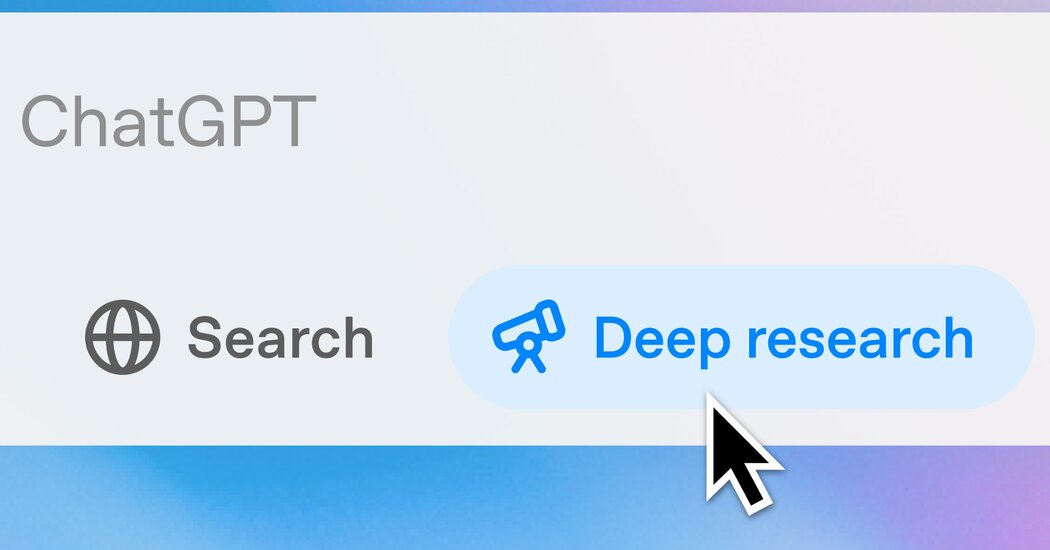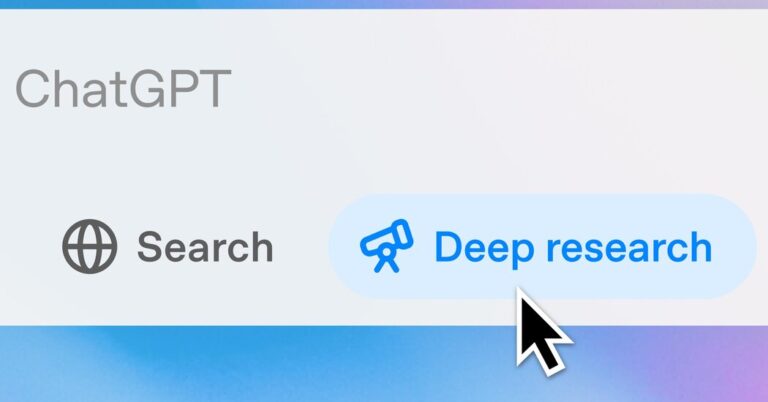A week ago, Openi has published a tool that can go online to shop or book a restaurants. Now it offers technology AI can collect information from the Internet and summarize them in concise reports.
Open has revealed the new tool, called Deep Research, with a demonstration on YouTube on Sunday, days after showing technology to legislators, politicians and other Washington officials.
“It can carry out complex research tasks that may request a person from 30 minutes to 30 days,” said Kevin Weil, Chief Product Officer in Openi, at the Washington event. On the contrary, deep research can carry out these tasks in 5-30 minutes, depending on the complexity.
Artificial intelligence researchers call this type of technology an artificial intelligence agent. While chatbots can answer questions, write poems and generate images, agents can use other software and internet services. This could lead to anything, from ordering dinner through Doordash to the synthesis of information from the Internet.
During the Briefing in Capitol Hill, Weil showed information on the collection of technology on Albert Einstein. He asked the tool to put together a detailed relationship on the physicist for a hypothetical member of the Senate staff who prepared himself for a congress audition in which Einstein is a candidate for the secretary of energy of the United States.
In addition to providing information on the background and personality of Einstein, he generated five questions that a senator could ask the body to determine if he was the right person for work.
“It can navigate the web and understand text, images and pdfs,” said Weil. “And it can do it in a recursive way. It can do a search and this leads to other searches, and therefore can summarize all the information it has learned. “
Weil said that the relationships generated by the tool included quotes that showed where information was found. But artificial intelligence technologies like this can still make mistakes or even invent information: a phenomenon that artificial intelligence researchers call “hallucination”. This can mean that it provides incorrect quotes.
Openai said that the tool could have difficulty distinguishing authoritative information from the items and that he often failed to transmit carefully when he was not sure of the information he was providing.
However, Weil claimed that the tool could help the United States accelerate economic growth. He added that the tool would be particularly useful for people in fields such as finance, science and law.
(The New York Times sued Openi and its partner, Microsoft, accusing them of violation of the copyright of news related to artificial intelligence systems. Openai and Microsoft have denied these statements.)
Openai said that, starting from Sunday, a deep research would be available for anyone who has been registered in Chatgpt Pro, a service from $ 200 per month that provides access to all the latest tools of the company. It also provides for the tool through other paid services.
The tool is based on the same technology that leads chatgpt. This technology is what artificial intelligence researchers call a neural network, a mathematical system capable of learning skills by analyzing the data.
In recent months, Openai has developed versions of technology that can “think” through tasks, determining through tests and errors what actions to undertake. The deep research is based on the most recent company’s reasoning technology, Openai O3.





